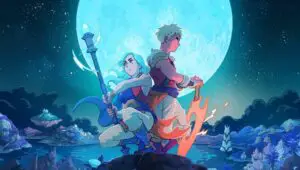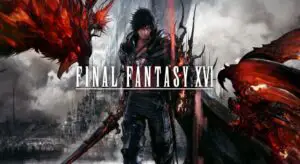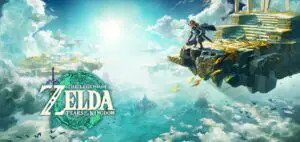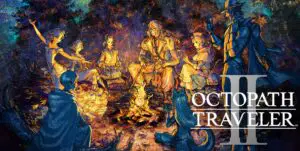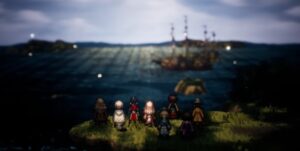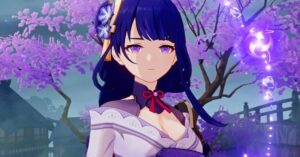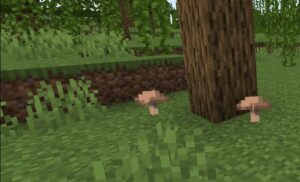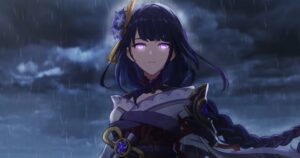God of War Ragnarok Review
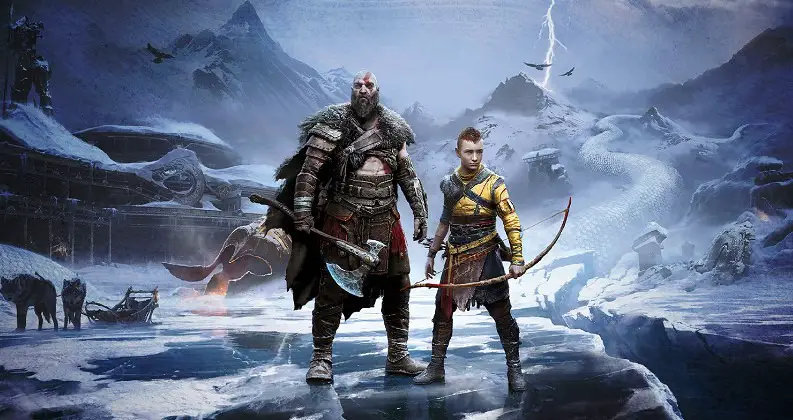
This is a spoiler-free God of War Ragnarok review, with the exception of some early-game story details.
God of War pulled off an immense feat back in 2018, taking a popular IP and changing it up in several ways. The gameplay, narrative structure and even the foundational mythology was overhauled to produce a wonderful all-round experience universally loved by critics and gamers alike (something that has become increasingly rare in recent years).
The incredible success of Santa Monica Studio’s new direction left the eagerly-awaited sequel, God of War Ragnarok, with a staggering amount of hype to fulfill. Impressively, Ragnarok triumphantly delivers an expansion of the superb gameplay whilst presenting another impactful emotional rollercoaster that gets the best out of its terrific cast.
God of War Ragnarok picks up a few years after its predecessor, with Kratos and Atreus living a modest life back in Midgard. The Nine Realms have been shaken by Fimbulwinter, making the elements more treacherous than ever. The duo are also being hunted by Freya, whose anger towards Kratos has not diminished at all since the concluding events of the previous story.
Before long, God of War’s post-credits scene comes to pass, and Kratos is approached by Odin and Thor. Odin, fearful of the prophesied apocalypse known as Ragnarok wishes to strike a deal with Kratos – refuse to get involved in the coming war, and he’ll leave them alone. It’s not hard to guess how Kratos responds to the subtle threat behind his words.
The legacy of these characters has been referenced regularly during Mimir’s stories, giving them a lot to live up to, and they don’t disappoint. Thor’s brutish, warmongering attitude hides the demons underneath, making him a thoroughly interesting (and sometimes hilarious) character. Throughout various moments, we see him in his role as father and son, serving as a fascinating contrast against both Kratos and Atreus depending on the situation.
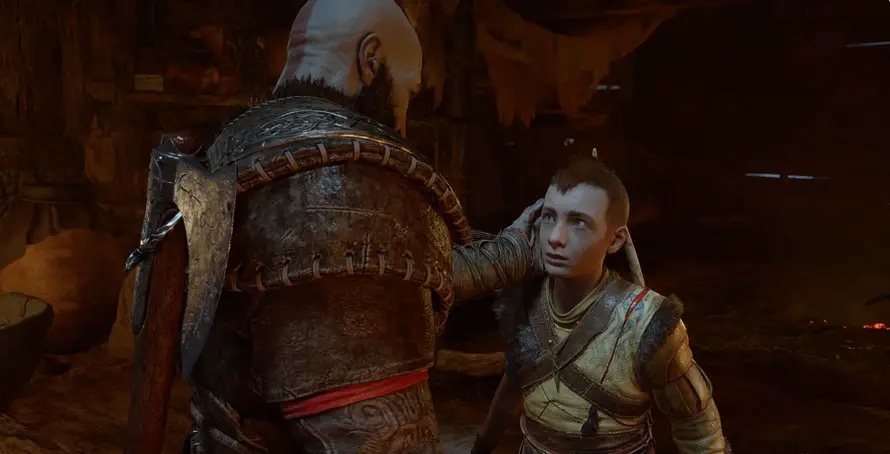
As engaging as I found Thor, it’s Odin who shines most as an antagonist. You’ll be forgiven for underestimating him, as he perfectly plays his part as the affable, mild-mannered old man who is secretly scheming ways to grow his power and influence. He is probably not what most people expected from the Allfather, who never overtly flaunts his power in a typically villainous way but serves as a cunning foe always two steps ahead. It’s a welcome case of subverting expectations in the right way.
Another villain worthy of mention is Heimdall, whose suitably condescending, arrogant demeanour makes him so easy to hate. Together, they form a fascinating collection of antagonists that elevate the narrative by presenting us with many nuanced situations to contemplate. You might even root for Odin, cleverly emphasising how he can so easily manipulate and win over his opponents.
The Asgardian contingent may earn plenty of screen time, but the core of the tale is once again the father-son relationship between Kratos and Atreus. God of War explored a story of two disconnected relatives learning to respect and love each other. Ragnarok plays into a very different conundrum between parent and child, which is entirely relatable from the perspectives of both characters. There is no doubting the strong bond they have forged, but as Atreus grows into manhood, a parent as protective as Kratos finds it increasingly difficult to let him find his own path and make his own mistakes.
The situations encountered encourage an understandable friction between the two, where both characters make similar mistakes with real consequences that need to be resolved. Even the emotional outbursts of a teenage Atreus usually feel warranted and don’t overstep the easily-crossed line of writing a child character as being too annoying.
Meanwhile, Christopher Judge’s iconic performance as Kratos doesn’t miss a beat. There aren’t so many growls of “Boy”, but Kratos still possesses the gruff, direct nature that can be both powerful and even comedic at times.
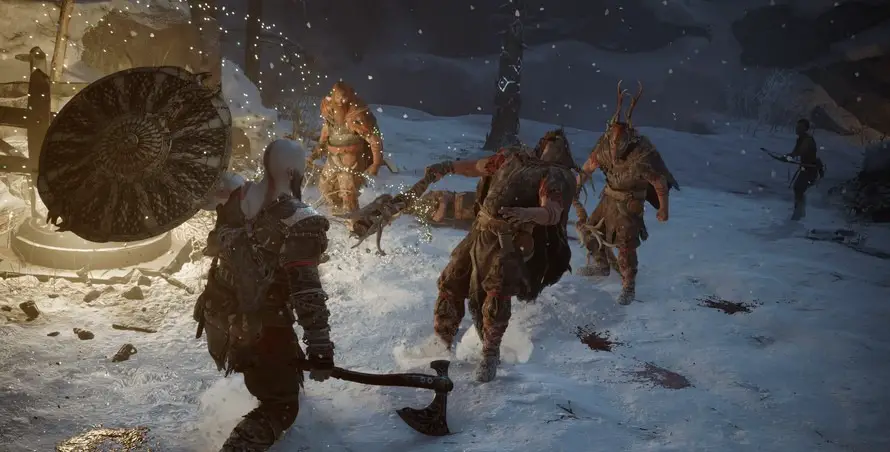
Another key story theme is the nature of fate, and whether events occur because they are set in stone or whether they are predictable based on the fundamental characteristics of the people concerned. It doesn’t necessarily tread much new ground with these ideas, but seeing deep, fleshed-out characters grapple with the question is fascinating nonetheless. Everything weaves together into another spectacular story that once again packs many emotional punches when it all comes to a head.
Turning to the gameplay, God of War Ragnarok utilises the template drawn up in the previous game to a tee, even managing to expand on it in a welcome and organic way. The combat is simply phenomenal, and once I’d brushed off the cobwebs and settled back into the rhythm of Kratos’s brutal playstyle, it was even better than I remembered.
Kratos’s range of attacks is perfectly crafted to balance against the various enemy types and the countless different situations you’ll encounter. Whether it’s obliterating hordes of weaker monsters, chipping away at stronger foes or epic battles against both at the same time, it’s always an awesome feeling to defeat the many varied enemy types.
The linear sections have a nice pace where frequent puzzles and exploration sections break up the fighting and allow you to collect yourself, but never hold you back for long. The next battle is never far away, and I never got bored of hacking through enemies or seeing Kratos’s devastating finishing moves.
Plenty of different elements enhance the combat further and keep it fresh. The skill trees have a bunch of trademark abilities as well as some new ones, and there is also a new weapon added to Kratos’s arsenal at a certain point, which I won’t spoil. The three different weapons have their own strengths and weaknesses, and it’s fun to switch them around quickly and test out different approaches. Although the weapons are different, the controls are mapped identically, making it easy to utilise unfamiliar weapons without feeling like a fish out of water.
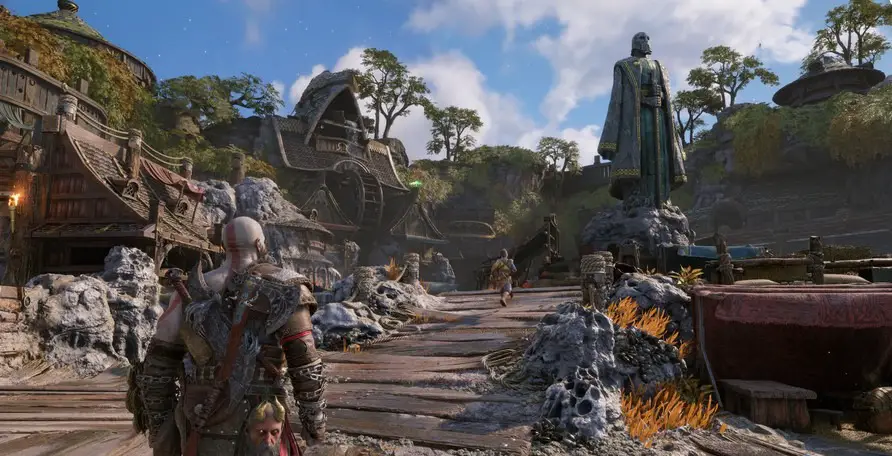
Furthermore, we even get several gameplay sections as Atreus which are surprisingly strong, given how enjoyable it is to fight as Kratos. Atreus is smaller and nimbler than Kratos, and his gameplay is more tailored towards ranged attacks, suitably mixing up the experience without committing the common gaming sin of needlessly dragging you away from the stuff that’s actually fun (I’m looking at you, Spider-man). Other than one particular segment that goes on a bit, the Atreus sections don’t outstay their welcome and you’ll soon be back wreaking havoc with Kratos.
There are many excellent boss battles that superbly mix gameplay challenge with spectacle, and if you feel suitably prepared there is also a wide selection of optional challenges that will test your mastery of the combat system. The Valkyries are a tough act to follow, and God of War Ragnarok pits you against some formidable foes if you wish to snag some of the best rewards.
A semi open-world structure is utilised again, and serves as a perfect fit. The linear segments invariably transition smoothly into larger areas with plenty of optional content to find. The maps strike another perfect balance – big enough that it feels rewarding to find the many secrets and quests on offer, but not to the extent that it feels overwhelming.
The new realms are all fascinating and well-designed locations, which have distinct aesthetic styles that are memorable and interesting to explore. Elsewhere, the revisited old areas have been significantly altered by Fimbulwinter, leaving them familiar enough to serve a dose of nostalgia whilst ensuring nothing is tedious with their inclusion.
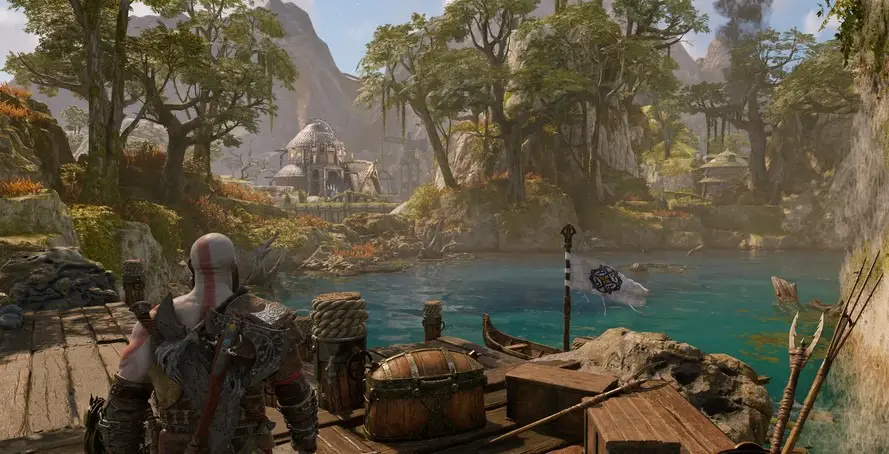
For its many achievements, God of War Ragnarok left me with just a few small gripes. The closing act of the game feels unusually rushed, with several significant interactions happening off-camera and other climactic events coming and going far too quickly.
In the gameplay stakes, I can deal with a few invisible walls but I’m getting sick of pointlessly slow climbing sections requiring you to simply hold the joystick up until you are signalled to press the next button. The game does too much platforming for you, and also can’t help itself from handing out constant clues to the puzzles you encounter. It doesn’t need to be as hands-off as an Elden Ring, but I’d appreciate them having a bit more faith in the player in these moments.
On the whole, there is still very little to fault about God of War Ragnarok, which is undoubtedly one of the best triple-A titles in recent memory. It easily sidesteps the pitfalls that have claimed many rival releases with a stunning, well-optimised experience that is written and performed superbly. The combat is as good as ever, and the gorgeous world packs so much quality content it is well worth exploring every corner of the Nine Realms to enjoy it. God of War Ragnarok is a jaw-dropping game that more than delivers on its massive hype.
Score: 9.5/10
God of War Ragnarok is a worthy sequel to one of the best action-adventure titles of its generation. The gameplay is as fluid and satisfying as its predecessor, with an exceptional story that gets the best out of a stellar cast of characters.
Positives
+ Outstanding graphical performance
+ Fantastic, brutal combat
+ Interesting, thought-provoking story
+ Superb cast of characters, wonderfully voice acted
+ Perfect gameplay balance of exploration, combat and puzzles
Negatives
– Final section feels rushed
– One or two mid-game sections drag

